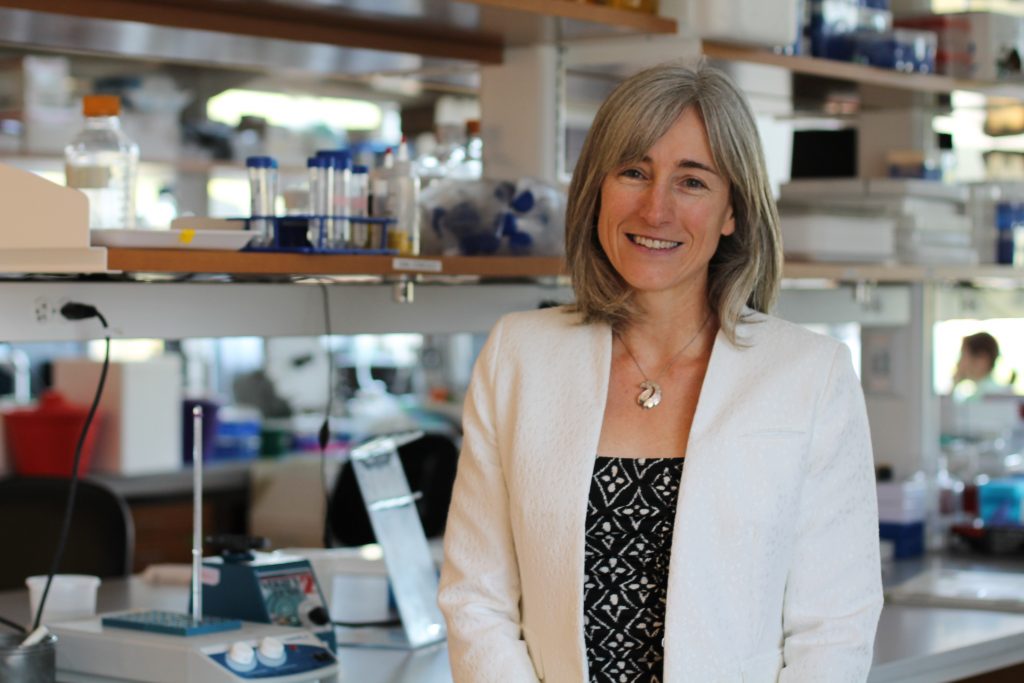
Endocrine News talks with Laura Alonso, MD, from Weill Cornell Medicine and NewYork-Presbyterian/Weill Cornell Medical Center where she discusses research funding and how she hopes her research improves the lives of patients with diabetes.
Laura Alonso, MD, is a physician-scientist working on a cutting-edge approach to replenish the body’s insulin-producing beta cells to treat diabetes. Alonso was recently named chief of the Division of Endocrinology, Diabetes and Metabolism at Weill Cornell Medicine and NewYork-Presbyterian/Weill Cornell Medical Center.
Endocrine News caught up with her to learn more about her leading diabetes research and ways she plans to have a lasting impact at Weill Cornell.
Endocrine News: It’s been a little over a month since you started your new position. Can you share any short-term goals you’ve set for Weill Cornell?
One of the challenges that people with diabetes face is that current therapies that we have are difficult for people to implement.
Alonso: My short-term goals are to map out the next few years in terms of developing that Endocrine Division, and also the Weill Center for Metabolic Health, which is a new diabetes and metabolism research center that we are developing on campus.
EN: Your research is leading to advancements in diabetes treatment. That doesn’t happen without research funding. How do you help other researchers at your institution get funding?
Alonso: You’re absolutely right that obtaining funding is one of the major challenges today in bio-medical research, and that’s also a challenge in diabetes and metabolic research. I put a high priority on mentoring junior faculty towards their first NIH grant. Foundation funding has also been extremely important for me. A big priority for me is to help our faculty and trainees get research funding. I think it’s also important to help people get experience on grant review panels so they can understand what goes into writing a successful proposal. I’d also like to have a group on campus that helps each other develop exciting research proposals both in clinical research and basic research in the metabolic area.
EN: Did you have that kind of support when you were a young researcher?
Alonso: I did! Not formally, but I had wonderful mentors in the beginning of my career at the University of Pittsburgh when I wrote my first NIH proposal. I remember presenting my ideas, that I had worked really hard on, to several of my more senior colleagues and emerging from that room in tears. And the proposal that I ultimately sent had nothing to do with the ideas that I went into that room with. So, I think gaining insight from people with experience is extremely important for people starting out.
EN: How will your approach to beta cell biology transform diabetes care?
Alonso: Several forms of diabetes result from an inadequate supply of beta cells. The main goal of my research is to help discover a new way to induce the pancreas to generate new beta cells in order to prevent diabetes or to treat established diabetes. And what we have discovered in my lab is that — and I think this remains controversial — when beta cells make more insulin, that engages a process called the unfolded protein response that helps each individual cell increase its insulin production capacity, but at the same time it also triggers a proliferation response to increase the number of beta cells. So, we’d like to learn more about that process and see whether we can harness that for therapeutic purposes.
EN: What about present day? What do you think is the biggest challenge facing endocrinologists who care for diabetes patients?
Alonso: One of the major challenges is that technology’s improving at an incredible pace. We have new devices for treating type 1 diabetes, and for measuring the blood sugar continuously. We have amazing medications for type 2 diabetes that help people lose weight and address the root cause of their diabetes. But for many people these technologies and medications are out of reach because of cost.
EN: There has been news about pharmaceutical and insurance companies trying to ease the cost of insulin but it’s not widespread. Is there enough driving the need to change the cost of these drugs and devices?
Alonso: I am optimistic that we will be able to solve this problem. There are a lot of really smart people working hard on this and I think that the awareness of the problem has grown substantially among the general public. I’m sure they will be able to find a workable solution.
Obtaining funding is one of the major challenges today in bio-medical research, and that’s also a challenge in diabetes and metabolic research.
I think another one of the challenges that people with diabetes face is that current therapies that we have are difficult for people to implement. If you ask people to change their food, that’s hard to do. Giving multiple injections of insulin each day, or managing devices like an insulin pump and a CGM, that’s hard to do. I hope that the technology improves to make the experience of having diabetes easier for people while at the same time preventing complications.
—Fauntleroy Shaw is a freelance writer based in Carmel, IN. She is a regular contributor to Endocrine News.

